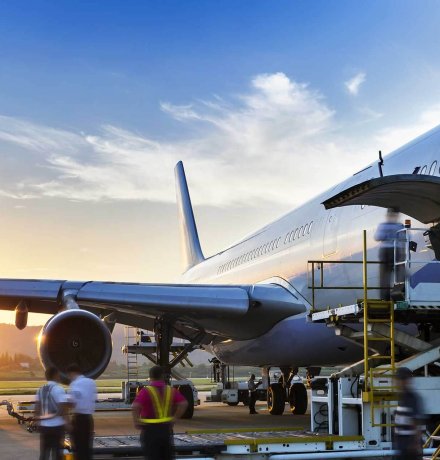MOVING TO
HUNGARY
A PRACTICAL COUNTRY SPECIFIC
MOVING GUIDE OFFERED BY US
FOR YOUR CONVENIENCE
MOVING TO
HUNGARY


Moving to
another country
Moving to another country, let alone half around the globe always seems a daunting task at first. Let us help you make this transition a smooth one and most importantly let our certified expertise in International Moving, Relocation and Shipping services assist and move you through the entire process. Our clientele benefit from our comprehensive know-how, fair and honest pricing, our in-depth and versatile service solutions in regards to your specific and individual moving & relocation needs!
TRANSIT TIMES
When moving, one should keep in mind the anticipated door-to-door transit time of their shipment as the length of transit might have numerous implications for you. For example, do I need to rent or purchase my new home in advance, shall I opt for a pre-longed hotel stay or have corporate housing? When moving for an employer or being a foreign civil servant on posting, your existing relocation policy will clearly identify your allowances and provide options in terms of residency while your belongings are in transit. Our team of Certified Moving Consultants® will discuss with you our various service and transit time options in regards to your particular moving needs.


U.S. Region to Hungary

FCL – SEA Freight
U.S. East Coast
- Expedited Service
- 4 -to- 6 weeks
- Regular Transit
- 5 -to- 7 weeks
U.S. Midwest
- Expedited Service
- 5 -to- 7 weeks
- Regular Transit
- 6 -to- 8 weeks
U.S. Gulf Coast
- Expedited Service
- 6 -to- 8 weeks
- Regular Transit
- 7 -to- 9 weeks
U.S. West Coast
- Expedited Service
- 6 -to- 8 weeks
- Regular Transit
- 9 -to- 11 weeks

AIRFREIGHT
U.S. East Coast
- Expedited Service
- 8 -to- 12 days
- Regular Transit
- 10 -to- 16 days
U.S. Midwest
- Expedited Service
- 8 -to- 12 days
- Regular Transit
- 10 -to- 16 days
U.S. Gulf Coast
- Expedited Service
- 12 -to- 16 days
- Regular Transit
- 14 -to- 20 days
U.S. West Coast
- Expedited Service
- 10 -to- 14 days
- Regular Transit
- 12 -to- 18 days

Consolidation – SEA
U.S. East Coast
- Expedited Service
- 8 -to- 10 weeks
- Regular Transit
- 10 -to- 12 weeks
U.S. Midwest
- Expedited Service
- 9 -to- 11 weeks
- Regular Transit
- 9 -to- 12 weeks
U.S. Gulf Coast
- Expedited Service
- 9 -to- 11 weeks
- Regular Transit
- 9 -to- 12 weeks
U.S. West Coast
- Expedited Service
- 10 -to- 12 weeks
- Regular Transit
- 10 -to- 14 weeks
HUNGARIAN CUSTOMS INFORMATION
IMPORTANT FACT:
Most of the required paperwork for importing used household & personal effects duty & tax free into Hungary does not differ much from other nations.
However:
– Imported items cannot be sold or leased.
– A shipment of used goods is duty free for returning citizens with proper and required documentation and for non-citizens with a valid resident permit.
– If the resident permit is valid for less than 1 year, a bank guarantee is required for the amount of the duty and other applicable shipment costs.
MOVING TO
HUNGARY


PRACTICAL INFORMATION – ELECTRONICS/HOME APPLIANCES/LAMPS
We are often ask by our clientele for advice in regards to whether or not to ship their electronics or home appliances as part of their move to Hungary?
The answer is somewhat complicated and a grey area. Some appliances or electronics might work with a transformer, others will definitely not work such as air conditioners, microwave ovens, vacuum cleaners, and/or electric clocks, because the appliance does not successfully adapt and a transformer will not be able to change the wattage.
So, which or what electrical appliances should I bring with me?
A general rule: Nothing that is big or consumes a lot of power. Laptops, computers, and small radios are fine to include in your shipment. Kitchen or laundry appliances, microwave ovens, power tools, and TV sets are not. Also keep in mind, if not sure or certain, please do not try! Plugging in a non-conforming appliance or electronic can result in an electrical fire or a severe, potentially lethal shock. Don’t assume a fuse or circuit breaker will protect you if you do something wrong.
If you move often, or know that you will be returning back to the USA within a certain time period, it might be wise to purchase so-called ‘Multi-system appliances and electronics’. These devices are manufactured to operate on either 110-120 volts or 220-240 volts and are referred to as “multi-system”. They are usually constructed with a switch that enables them to be operated on either current. In addition, multi-system television sets are adaptable to the different video systems (USA = NTSC vs. Hungary = SECAM) and scanning standards and can be used in either country. This way you won’t have to worry about frequent new purchases or trying to sell off under market price your used appliance or electronic item when relocating back home or to another country.
Certain table lamps with normal outside wiring can be used with a plug adapter, but most importantly you’ll have to change the light bulb/s as they are designed for one voltage system generally and do not work well in another plus a wrong light bulb/s can become dangerous. Risks include electrocution and fire (immediate or delayed).
For expensive ceiling lamp fixtures, chandeliers or sconces one might consider taking them along and having them rewired, adapted and made compatible with the local line voltage and frequency by a local specialty shop or retailer in your destination country.
CULTURAL INFORMATION
- Hungary is a land-locked country in Central Europe sharing its borders with Austria, Croatia, Romania, Serbia, Slovakia, Slovenia and Ukraine.
- Its capital city is Budapest with a population of 1.709 million (2011).
- Hungary was once part of the Celtic world, then the Roman Empire.
- Founded in 897, Hungary is one of the oldest countries in Europe (before France and Germany became separate entities, and before the unification of Anglo-Saxon Kingdoms.)
- Around 1000 CE, the Kingdom of Hungary was one of the largest states in Europe, bigger than France.
- Hungarian language is known as Magyar and is the direct descendent of the language spoken by the Huns.

